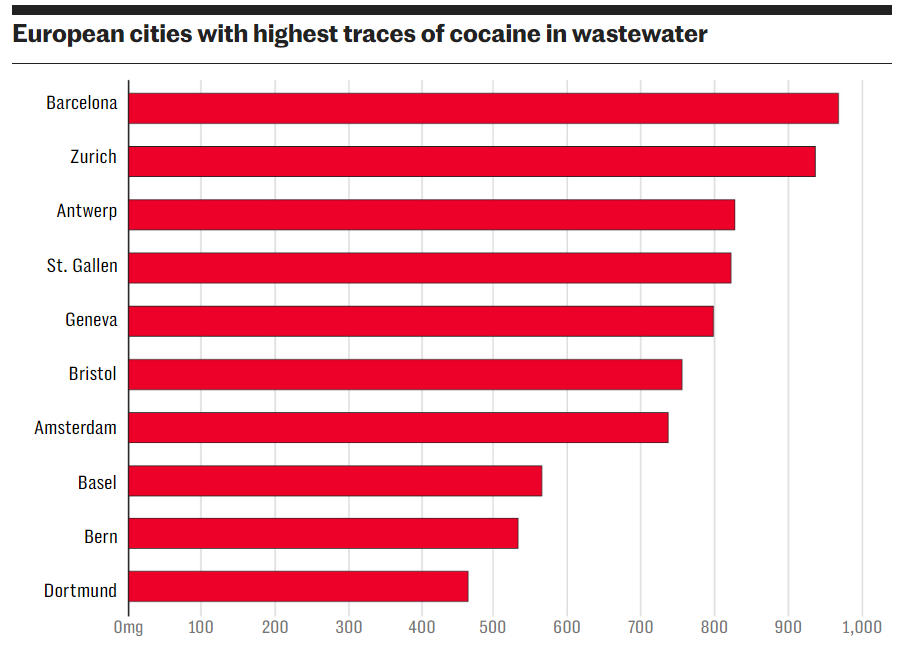Is Switzerland Considering Cocaine Legalization?

©️ Kittipong Chararoj / Vecteezy
Forget cheese, Switzerland’s new export might be a little more… powdery!
Bern, Switzerland’s capital is considering cocaine legalization and regulating the sale of cocaine for recreational use. This pilot scheme, if implemented, would be the first of its kind in the world.
Why the Change?
1. High Cocaine Use
Switzerland has some of the highest cocaine consumption rates in Europe, with Zurich, Basel, and Geneva ranking among the top 10 cities.
2. War on Drugs Failure
Experts argue that the current approach of banning cocaine hasn’t worked. Prices have plummeted, and usage is rising.
3. Safer Market
Proponents believe legalization could bring the cocaine market under government control, ensuring quality and potentially reducing risks associated with illegal drug use.
Experts and policymakers are acknowledging the ineffectiveness of the current “war on drugs” approach. Prices of cocaine have plummeted in recent years, while usage continues to rise. This stark reality has prompted a reevaluation of strategies.

Challenges and Concerns That Come With Cocaine Legalization
Advocates for the legalization scheme argue that bringing the cocaine market under government control could offer several advantages. Legalization would allow for quality control, potentially reducing the health risks associated with contaminated street drugs.
Additionally, Switzerland’s cocaine legalization regulation could limit access to minors and provide a framework for public education campaigns focused on responsible use and harm reduction. Proponents believe that a regulated market could decrease the power of criminal organizations profiting from the illegal drug trade.

- Legal Hurdles: Existing national law bans recreational cocaine use, requiring a change for the pilot scheme to proceed.
- Health Risks: Opponents worry about the highly addictive nature of cocaine and its potential health risks like heart damage, depression, and overdose.
- Government Opposition: Bern’s left-leaning parliament supports the scheme, but the right-leaning cantonal government may block the necessary legal changes.
Next Steps Into Cocaine Legalization
- Pilot Scheme Details: The specifics of the scheme, such as distribution channels and sourcing, are still under development.
- Scientific Evaluation: Bern’s education department is drafting a report analyzing the potential trial.
- Public Debate: The proposal has sparked debate, with discussions about potential benefits and risks ongoing.

Switzerland’s proposal for cocaine legalization represents a bold and controversial step in drug policy. If implemented, it would undoubtedly be closely watched by the world.
However, whether or not Switzerland becomes the first country to legalize cocaine, their very consideration of this radical approach reflects a growing global conversation about alternative strategies to address drug use and addiction.
Will Switzerland become the first country to legalize cocaine? This bold proposal faces significant hurdles, but it reflects a growing worldwide conversation about alternative approaches to drug policy.
You might also like to read: Scientists Are Developing a Cocaine Addiction Treatment


